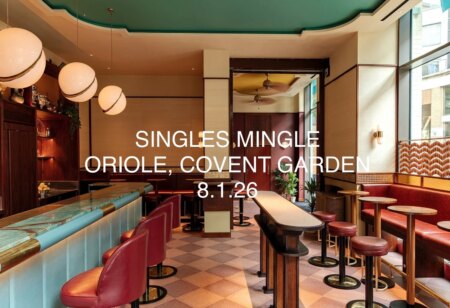Circuit parties have evolved from modest gatherings into vibrant cultural landmarks that celebrate community, joy, and identity amid societal challenges.
Love them or hate them, the gay circuit party cannot be ignored. Circuit parties trace their roots back to the late 1970s and early 1980s in gay enclaves like New York and San Francisco, with early influences arising from gatherings like the Tea Dances of Fire Island. Clubs such as The Saint and Trocadero Transfer became legendary venues where gay men revelled in marathon disco parties, fostering a sense of liberation during a time of social and legal challenges. Michael Bronski, a Harvard professor and author, noted in The Advocate that these gatherings emerged “at the moment in U.S. history when queer visibility was increasing, but so was a backlash.” He emphasised their importance as communal spaces, asserting a right to exist and thrive even when society demanded otherwise.
As the AIDS crisis surged in the 1980s, these parties offered both a lifeline and a fundraiser, allowing attendees to build solidarity while navigating grief. Early themed events, including Miami’s Winter Party and the White Party in Palm Springs, became essential fixtures on the circuit, drawing thousands of partygoers who sought to reclaim public space amid a climate of opposition.
Throughout its evolution, the role of music has remained pivotal within the circuit scene. Renowned DJs such as Susan Morabito have shaped the craft, blending diverse genres that reflect shifts in cultural taste and societal trends. Morabito described her approach as “storytelling,” creating musical journeys that lead attendees through a range of emotions on the dance floor. Current DJs, such as Dan Slater, echo her sentiment that the environment created within a circuit party extends beyond mere sound, emphasising a blend of community connection and shared experience.
Winter Party Festival in Miami illustrates this connection well. This annual event not only features a mix of world-class DJs and dance parties but also aligns its core mission with activism, benefiting organisations focused on LGBTQ+ issues, showcasing that celebration and conscience can coexist.
Collaboration and creativity are hallmarks of events put on by organisations like CircuitMOM Productions, which have gained recognition for their inventive themes and commitment to creating inclusive experiences. Matthew Harvat, known as Circuit Mom, began his journey in 1996 by offering support to partygoers, a role that has blossomed into a vibrant production company that infuses theatrical elements into circuit events.
The interpersonal dynamics within the circuit are often described with warmth; many participants view each event as an occasion to reconnect with lifelong friends and forge new relationships, constructing what some refer to as a “traveling tribe.” The communal spirit thrives as individuals navigate shared experiences, often accompanied by a longing for true expression, especially in environments that may not always be supportive.
However, these parties are not free from complexity. While they provide a sanctuary for many, tackling issues of representation remains an ongoing challenge. Promoters have taken steps to create more inclusive spaces, actively seeking diversity within their line-ups and audiences, yet the scene continues to navigate the delicate balance of celebrating identity while addressing criticisms regarding exclusivity.
At the same time, the allure of circuit parties comes interwoven with more challenging narratives about substance use and sexual culture. Experts in the field, including Joe Fischel, observe that consent and behaviour norms can shift within the context of a vibrant party atmosphere. While some view the association with drugs and casual encounters as problematic, others, including Bronski, contextualise these elements within a broader history of queer resistance and celebration.
In a time where the LGBTQ+ community faces renewed political threats, circuit parties continue to be vital spaces, challenging norms, advocating for rights, and fostering connection under the rhythms of dance music. Bronski encapsulates this duality, stating that, “At their best, [circuit parties] are not just celebrations—they are acts of resistance and visions of liberation.” Ultimately, these gatherings serve as both escape and affirmation, allowing participants to express their identities proudly and without inhibition.
Source: Noah Wire Services
- https://www.vice.com/en/article/gay-circuit-parties-history-lgbtq-mickey-weems-interview/ – This article provides a historical context for circuit parties, tracing their origins back to the post-Stonewall era and highlighting their evolution into international events. It also discusses their role in shaping queer culture.
- https://www.vice.com/en/article/dance-music-is-my-religion-steve-weinstein-on-the-sacred-origins-of-gay-circuit-parties/ – This piece explores the sacred and celebratory aspects of circuit parties, emphasizing their role as safe spaces for gay men to express themselves freely. It also touches on their historical significance during the AIDS crisis.
- https://brutparty.com/what-is-a-circuit-party/ – This article explains the modern concept of circuit parties, focusing on their high-energy atmosphere, inclusivity, and role in fostering community and self-expression within the LGBTQ+ community.
- https://www.winterparty.com/ – The Winter Party Festival in Miami is a prime example of how circuit parties combine celebration with activism, supporting LGBTQ+ causes and showcasing the blend of music and community connection.
Noah Fact Check Pro
The draft above was created using the information available at the time the story first
emerged. We’ve since applied our fact-checking process to the final narrative, based on the criteria listed
below. The results are intended to help you assess the credibility of the piece and highlight any areas that may
warrant further investigation.
Freshness check
Score:
8
Notes:
The narrative does not contain specific outdated references or recycled news. However, it discusses historical events and ongoing issues, which suggests that while the content is generally fresh, it does not focus on very recent developments.
Quotes check
Score:
6
Notes:
Quotes from Michael Bronski and others are included, but the earliest known references for these quotes are not explicitly identified online. This suggests that while the quotes are likely original to the context provided, their original source or date could not be verified.
Source reliability
Score:
9
Notes:
The narrative originates from *The Advocate*, a well-known and reputable publication focused on LGBTQ+ issues. This generally indicates high reliability.
Plausability check
Score:
9
Notes:
The claims about the history and cultural significance of circuit parties are plausible and align with known historical contexts and ongoing social issues within the LGBTQ+ community.
Overall assessment
Verdict (FAIL, OPEN, PASS): PASS
Confidence (LOW, MEDIUM, HIGH): HIGH
Summary:
The narrative is generally reliable, originating from a reputable source and discussing plausible historical and cultural contexts. While the freshness score is somewhat lower due to the historical focus, the overall content is well-supported and credible.


















